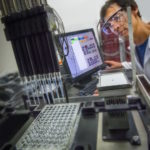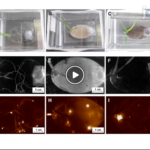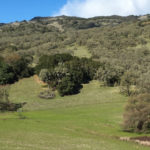While advances in sequencing technologies have enabled researchers to access the genomes of thousands of microbes and make them publicly available, the task of assigning functions to the genes uncovered has lagged behind due to the limited capacity of functional analysis approaches. To help overcome this bottleneck, Berkeley Lab researchers, led by Adam Arkin and Adam Deutschbauer in Biosciences’ Environmental Genomics and Systems Biology (EGSB) Division and Matthew Blow at the DOE Joint Genome Institute (JGI), have developed a workflow that enables large-scale, genome-wide assays of gene importance across many conditions.
Banfield Elected to the Royal Society
Jillian Banfield, faculty scientist in the Earth and Environmental Sciences Area with a secondary appointment in the Environmental Genomics and Systems Biology Division, has been elected as a Fellow to the Royal Society. She is among fifty scientists who were selected for this honor in recognition of their exceptional contributions to science. Banfield, who is also a professor at UC Berkeley, studies the structure, functioning and diversity of microbial communities in natural environments and the human microbiome. Read more in the Royal Society press release.
Biosciences Area FY18 LDRD Projects
The projects of 13 Biosciences Area scientists and engineers received funding through the FY18 Laboratory Directed Research and Development (LDRD) program. These projects span a diverse array of topics and approaches including the study of microbiomes in relation to patterns of mutualism, crop productivity, and gut health; synthetic biology for engineering biosurfactant production and energy conversion pathways; and the application of technologies such as machine learning, high-resolution optical microscopy, and single-cell transcriptomics. Together, these efforts account for 18.75 percent of the $20 million allocated. Lab-wide, 74 projects were selected from a field of 215.
Northen Lab Publishes Video Protocol for Building EcoFABs
Scientists in Trent Northen’s groups in Environmental Genomics and Systems Biology (EGSB) and Metabolomics Technology at the DOE Joint Genome Institute (JGI) have published detailed video protocols for creating fabricated ecosystems, or EcoFABs, in the Journal of Visualized Experiments (JOVE). These laboratory-scale controlled habitats, constructed using widely available 3D printing technologies, enable mechanistic studies of plant-microbe interactions within specific environmental conditions. The published protocols serve as a starting point for other researchers, ideally helping to create standardized experimental systems for investigating plant-microbe interactions. The video component of this article can be found here.
Plants Really Do Feed Their Friends
Researchers at Berkeley Lab and UC Berkeley have discovered that as plants develop, they craft their root microbiome, favoring microbes that consume very specific metabolites. Their study could help scientists identify ways to enhance the soil microbiome for improved carbon storage and plant productivity.
- « Previous Page
- 1
- …
- 29
- 30
- 31
- 32
- 33
- …
- 46
- Next Page »
Was this page useful?








